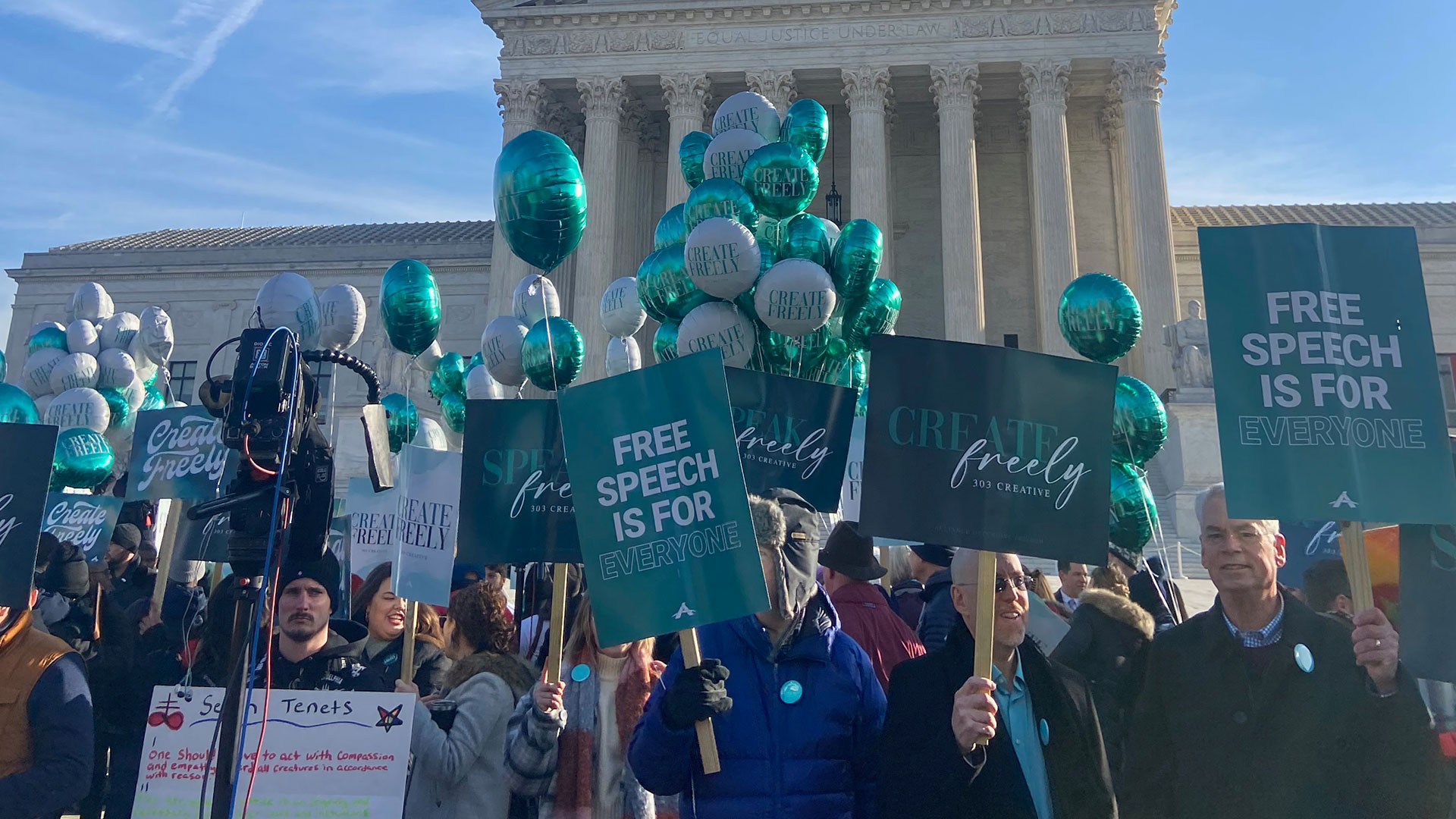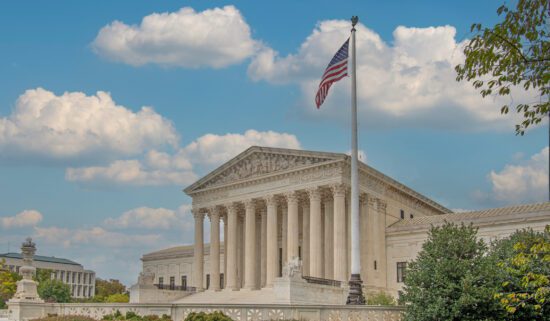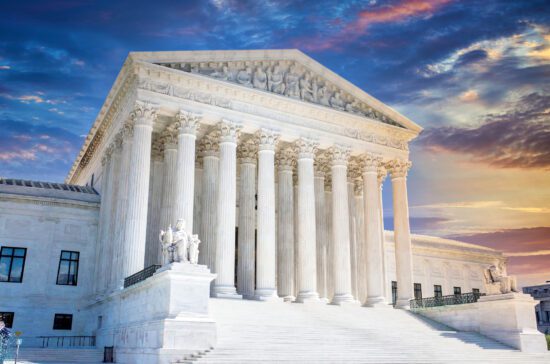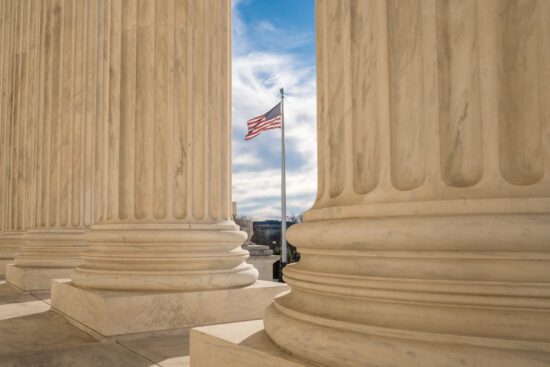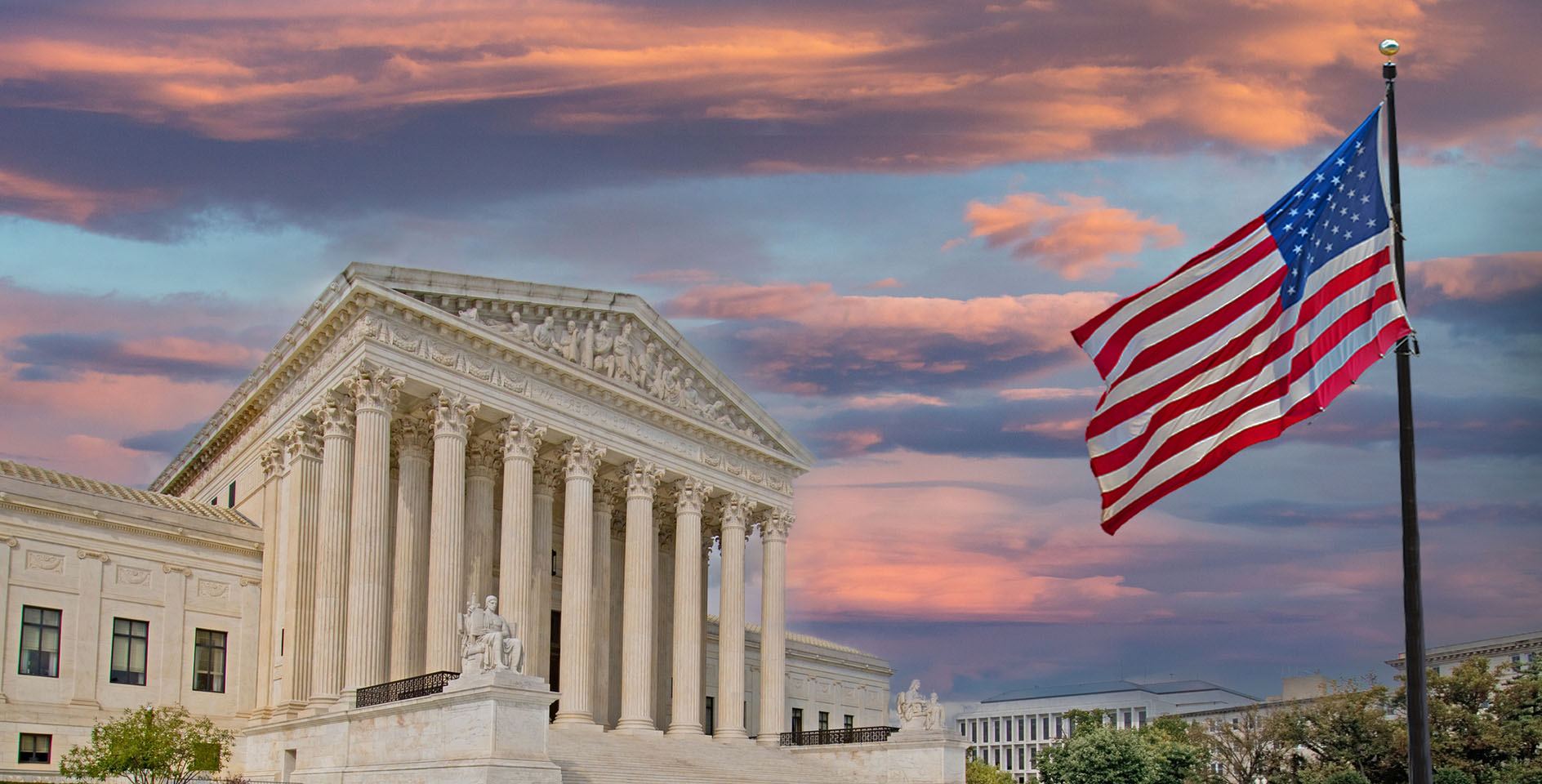Today, the U.S. Supreme Court ruled in a 6-3 decision in the 303 Creative case that the state of Colorado violated the First Amendment rights of petitioner Lorie Smith by enforcing state anti-discrimination laws against her graphic design business, compelling her to speak in a way that violated her beliefs. Justice Gorsuch delivered the opinion of the court, with Justices Alito, Barrett, Kavanaugh, Thomas, and Chief Justice Roberts joining. Justice Sotomayor filed the dissenting opinion, joined by Justices Kagan and Jackson.
ERLC President Brent Leatherwood commented on this ruling:
If the government can compel an individual to speak a certain way or create certain things, that’s not freedom—it’s subjugation. And that is precisely what the state of Colorado wanted.
Thankfully, the court has stepped in to say that individual rights may not be paved over by a zealous government. Colorado’s scheme of compulsion and coercion against creators has failed once more.
But the implications of this ruling extend throughout the nation: People are free to speak, create, and operate in ways that are consistent with their deepest-held beliefs—even when those beliefs are deemed culturally unpopular.
What did the 303 Creative case decision say?
Today’s decision is a landmark ruling in favor of free speech. Quoting previous cases, the court highlighted that the framers designed the First Amendment to protect the freedom to think and speak as one wishes. The government cannot suppress speech simply because it deems it “misinformed or offensive” (17). The court emphasized that technological advancements, such as the internet, do not diminish the protections afforded by the First Amendment.
Though the opinion recognized the important role that public accommodation laws have played and continue to play in our nation, it noted that these laws can “sweep too broadly when deployed to compel speech” (14) and that “no public accommodations law is immune from the demands of the Constitution” (14). The court took an expansive view of what should be considered “speech,” and thus, be afforded First Amendment protections.
It also rejected arguments made that Lorie Smith was merely facilitating the speech of others through the creation of a website. It also rejected claims that because each creative professional is unique, prospective clients would be unable to find a satisfactory alternative. As Justice Gorsuch wrote, this would mean that “the more unique his talent, the more easily his voice could be conscripted to disseminate the government’s preferred messages. That would not respect the First Amendment; more nearly, it would spell its demise” (15).
Rather, the First Amendment was designed to establish the United States as “a rich and complex place where all persons are free to think and speak as they wish, not as the government demands” (26). Justice Gorsuch clarified, “Of course, abiding the Constitution’s commitment to the freedom of speech means all of us will encounter ideas we consider ‘unattractive, misguided, or even hurtful,’ but tolerance, not coercion, is our Nation’s answer” (25-26).
Why does this decision in the 303 Creative case matter for Southern Baptists?
This ruling provides yet another legal victory for free speech, affirming that creative professionals possess the First Amendment protections necessary to express their core convictions in the marketplace and public square. The ruling also clarifies the understanding of the Free Speech Clause, which carries positive implications for individuals seeking First Amendment protections in the arts and business sectors. Though this case was a win for free speech, it was also a win for religious liberty.
As Southern Baptists, our beliefs on matters of marriage and gender are core to our convictions, pointing to God’s design and the living picture of Christ and his Church. It is essential that people of faith not only have the ability to believe these fundamental truths but also to express them in the public square.
The First Amendment protects this right, and the court’s ruling affirms these robust constitutional protections for free speech — even when that speech is culturally unpopular.
What is this 303 Creative case about?
Lorie Smith, owner of the web design firm 303 Creative, challenged a Colorado law that violates her First Amendment rights—the same law used to target Christian cake designer Jack Phillips in the 2018 Masterpiece Cakeshop v. Colorado Civil Rights Commission case. In that case, the court ruled favorably for Phillips on narrow grounds but failed to address the underlying conflict between anti-discrimination laws and free speech rights.
Like Phillips, Lorie Smith is a creative professional who serves others through her business. She has created custom websites for people of all backgrounds, but she refuses to use her design skills and creativity to express messages inconsistent with her Christian convictions.
This case first arose when the state of Colorado categorized Smith’s work as a public accommodation. This subjected her business to review under Colorado’s Anti-Discrimination Act, which prohibits discrimination, including refusal of service, against any protected class, including sexual orientation or gender identity. This placed Smith’s desire to run her business according to her beliefs in direct conflict with Colorado law.
How did the ERLC engage this case?
The ERLC has written in favor of Lorie Smith, preparing Christians and Southern Baptist churches to respond to this important decision. The ERLC believes that all of our foundational First Amendment rights are interconnected; a weakening of one is a weakening of them all. The Supreme Court has once again affirmed a robust view of these foundational rights, and we applaud this ruling in favor of freedom of speech in the public square. We will continue to advocate for religious freedom, as well as God’s design for marriage and family, no matter what views are fashionable at the time.



